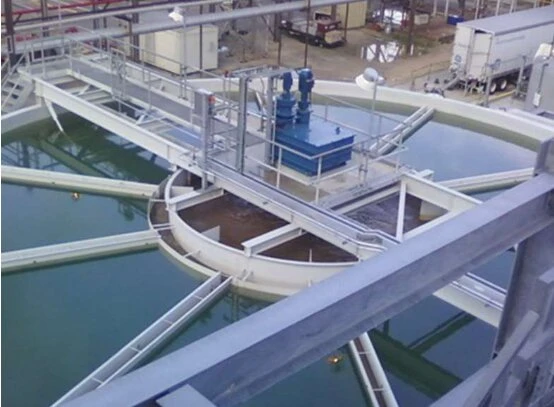
-
 Afrikaans
Afrikaans -
 Albanian
Albanian -
 Amharic
Amharic -
 Arabic
Arabic -
 Armenian
Armenian -
 Azerbaijani
Azerbaijani -
 Basque
Basque -
 Belarusian
Belarusian -
 Bengali
Bengali -
 Bosnian
Bosnian -
 Bulgarian
Bulgarian -
 Catalan
Catalan -
 Cebuano
Cebuano -
 China
China -
 China (Taiwan)
China (Taiwan) -
 Corsican
Corsican -
 Croatian
Croatian -
 Czech
Czech -
 Danish
Danish -
 Dutch
Dutch -
 English
English -
 Esperanto
Esperanto -
 Estonian
Estonian -
 Finnish
Finnish -
 French
French -
 Frisian
Frisian -
 Galician
Galician -
 Georgian
Georgian -
 German
German -
 Greek
Greek -
 Gujarati
Gujarati -
 Haitian Creole
Haitian Creole -
 hausa
hausa -
 hawaiian
hawaiian -
 Hebrew
Hebrew -
 Hindi
Hindi -
 Miao
Miao -
 Hungarian
Hungarian -
 Icelandic
Icelandic -
 igbo
igbo -
 Indonesian
Indonesian -
 irish
irish -
 Italian
Italian -
 Japanese
Japanese -
 Javanese
Javanese -
 Kannada
Kannada -
 kazakh
kazakh -
 Khmer
Khmer -
 Rwandese
Rwandese -
 Korean
Korean -
 Kurdish
Kurdish -
 Kyrgyz
Kyrgyz -
 Lao
Lao -
 Latin
Latin -
 Latvian
Latvian -
 Lithuanian
Lithuanian -
 Luxembourgish
Luxembourgish -
 Macedonian
Macedonian -
 Malgashi
Malgashi -
 Malay
Malay -
 Malayalam
Malayalam -
 Maltese
Maltese -
 Maori
Maori -
 Marathi
Marathi -
 Mongolian
Mongolian -
 Myanmar
Myanmar -
 Nepali
Nepali -
 Norwegian
Norwegian -
 Norwegian
Norwegian -
 Occitan
Occitan -
 Pashto
Pashto -
 Persian
Persian -
 Polish
Polish -
 Portuguese
Portuguese -
 Punjabi
Punjabi -
 Romanian
Romanian -
 Russian
Russian -
 Samoan
Samoan -
 Scottish Gaelic
Scottish Gaelic -
 Serbian
Serbian -
 Sesotho
Sesotho -
 Shona
Shona -
 Sindhi
Sindhi -
 Sinhala
Sinhala -
 Slovak
Slovak -
 Slovenian
Slovenian -
 Somali
Somali -
 Spanish
Spanish -
 Sundanese
Sundanese -
 Swahili
Swahili -
 Swedish
Swedish -
 Tagalog
Tagalog -
 Tajik
Tajik -
 Tamil
Tamil -
 Tatar
Tatar -
 Telugu
Telugu -
 Thai
Thai -
 Turkish
Turkish -
 Turkmen
Turkmen -
 Ukrainian
Ukrainian -
 Urdu
Urdu -
 Uighur
Uighur -
 Uzbek
Uzbek -
 Vietnamese
Vietnamese -
 Welsh
Welsh -
 Bantu
Bantu -
 Yiddish
Yiddish -
 Yoruba
Yoruba -
 Zulu
Zulu
Advanced Techniques for Effective FRP Clarification in Water Treatment Systems
Understanding FRP Clarifiers Innovations in Water Treatment
In today's fast-paced world, efficient water treatment technology is becoming increasingly crucial. One of the innovations making waves in this sector is the Fiberglass Reinforced Plastic (FRP) clarifier. FRP clarifiers represent a significant advancement in the design and implementation of wastewater treatment facilities, providing numerous benefits over traditional materials and structures.
What is an FRP Clarifier?
An FRP clarifier is a wastewater treatment device made from fiberglass reinforced plastic, a composite material known for its durability, corrosion resistance, and lightweight properties. The primary function of a clarifier is to separate solid particles from liquid in a mixture. In wastewater treatment, the goal is to remove suspended solids and impurities from water before it is discharged back into the environment or undergoes further treatment.
Advantages of FRP Clarifiers
1. Corrosion Resistance One of the most significant advantages of FRP material is its resistance to corrosion. Traditional clarifiers made of steel or concrete are susceptible to rust and degradation when exposed to harsh chemicals and environmental conditions. In contrast, FRP clarifiers stand up to aggressive substances without chemical breakdown, resulting in longer service life and lower maintenance costs.
2. Lightweight and Easy Installation FRP clarifiers are considerably lighter than conventional clarifiers. This lightweight nature not only makes transportation easier but also reduces installation labor and associated costs. The ease of handling allows for rapid deployment, which is particularly beneficial in emergency situations where swift action is needed.
3. Cost-Effectiveness While the initial investment in FRP clarifiers may be higher than that for concrete or steel options, the total lifecycle cost comes out lower due to reduced maintenance, longer service life, and energy-efficient operations. These clarifiers require less energy for pumping and can handle variable flow rates without compromising performance.
frp clarifier

4. Customizability FRP clarifiers can be designed to fit various operational needs, allowing for customization to suit specific applications. Whether it involves adjusting size, shape, or configuration, FRP technology provides the flexibility needed to accommodate unique wastewater treatment processes.
5. Better Performance The smooth surfaces of FRP clarifiers promote better settling of solids, enabling more efficient clarification. They minimize the chances of clogging and enhance the overall performance of the treatment process, often leading to improved water quality in the final discharge.
Applications of FRP Clarifiers
FRP clarifiers are versatile and can be used in a variety of settings. They are particularly effective in municipal wastewater treatment plants, industrial effluent treatment, and for stormwater management systems. Additionally, they are used in food processing, pharmaceuticals, and other industries where high purity water is essential.
Challenges and Considerations
Despite their advantages, FRP clarifiers are not without challenges. The initial cost can deter some facilities from making the switch, and the technology may not be suitable for all applications. Additionally, proper training and knowledge are necessary to ensure that technicians can manage and maintain these specialized systems effectively.
Conclusion
In conclusion, FRP clarifiers represent a significant leap forward in water treatment technology. Their corrosion resistance, lightweight nature, cost-effectiveness, and enhanced performance make them an appealing choice for various applications. As industries continue to seek sustainable and efficient methods for managing wastewater and preventing pollution, the adoption of FRP clarifiers is likely to grow. With ongoing advancements in materials science and engineering, FRP technology will play a pivotal role in shaping the future of water treatment systems worldwide, ensuring we can meet the demands of both today and tomorrow.









